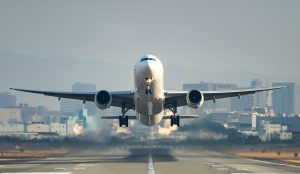Travelling by air can be a stressful enough experience for the typical passenger, but for those who have a disability the stress is amplified. Whether its due to insufficient space, exhaustion, or the extensive planning needed the experience is far from enjoyable. Because of this, you would hope airports would accommodate disabled passengers by being attentive and making reasonable adjustments. However, recent reports show that this may not be the case.
How Might Airports be Failing Disabled Passengers?
 An area that seems to be of particular issue is the treatment of disabled passengers when it comes to boarding and disembarking a plane. There have been numerous unfavourable reports about how efficient and attentive airports are in relation to this area.
An area that seems to be of particular issue is the treatment of disabled passengers when it comes to boarding and disembarking a plane. There have been numerous unfavourable reports about how efficient and attentive airports are in relation to this area.
One such example is the incident involving BBC journalist Frank Gardener, who requires a wheelchair. As ordinary wheelchairs cannot fit in between an aeroplane aisle, users must use a specialised chair and transport their own separately, then switch back at the destination. However, when Frank Gardener landed at Heathrow Airport in March 2018 his chair was at the terminal and not the door of the plane. It then took 100 minutes for staff to fetch his wheelchair so he could disembark.
This incident certainly does no favours to the reputation of the UK’s biggest airport when it comes to assisting disabled passengers. Considering that they would have been informed about the presence of a wheelchair user on the plane it would not have been unreasonable to expect them to have a chair ready in time. Instead, a paying passenger was left confined to a cramped plane seat, not only delaying them but also both the airport and airline involved. Furthermore, this is by no means an isolated incident.
How Can Air Travel Be Improved for Disabled Passengers?
 The obvious answer would be to improve the efficiency when it comes to assisting disabled passengers with their journeys, but it may well come down to more than just better organisation. A change in attitude towards disabled passengers would likely encourage employees, airports, and companies to improve the service.
The obvious answer would be to improve the efficiency when it comes to assisting disabled passengers with their journeys, but it may well come down to more than just better organisation. A change in attitude towards disabled passengers would likely encourage employees, airports, and companies to improve the service.
For example, in the wake of the incident with Frank Gardener, Heathrow felt there was no need to compensate passengers when occurrences like these happen, believing it is not their “…financial responsibility”. Surely it would have been an obvious solution for Heathrow to simply offer a small gesture or even a basic apology in order to make up for the error. Instead, a dismissive attitude towards the needs of disabled passengers seems to stem from the top.
By changing the overall mentality that is directed towards disabled passengers, incidents of being stranded on planes, having to be moved by staff, or being dismissed altogether can be eliminated. This can then lead to better travel experience for everybody involved.
